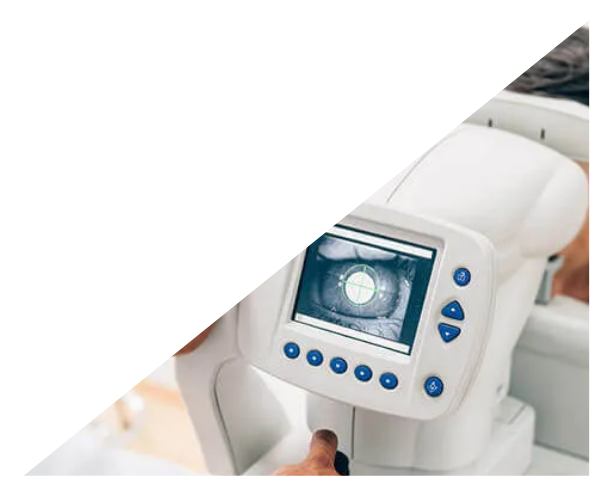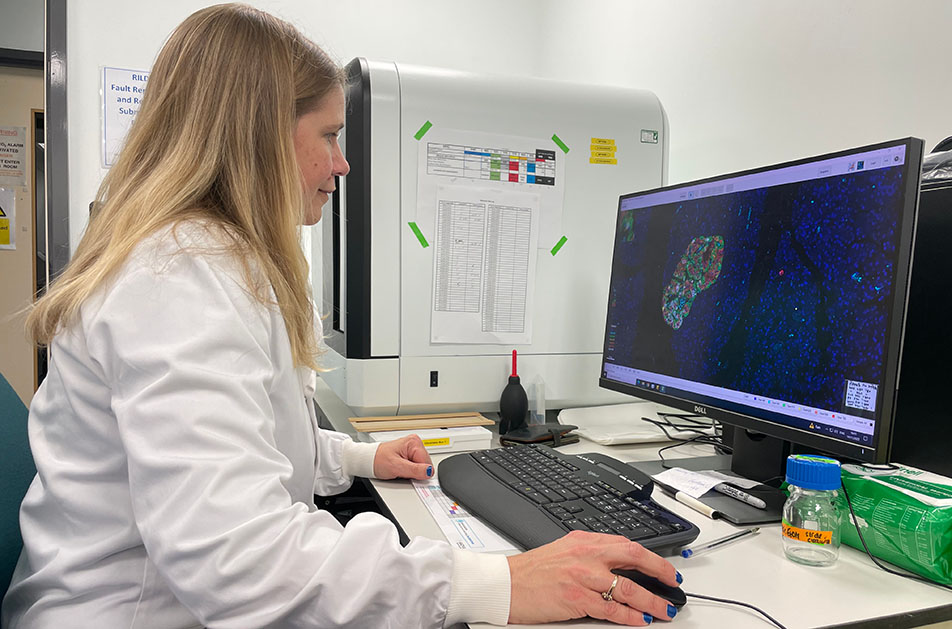Home » The challenges »
To help people manage their type 1 diabetes, we need new types of insulin that work quicker and more precisely to keep blood sugar levels stable. The Type 1 Diabetes Grand Challenge is funding research to develop the next generation of insulins that relieve some of the burden of insulin therapy.
The next generation of insulins
One of the challenges of managing blood glucose levels is that synthetic insulin takes longer to get to work than insulin made naturally in the pancreas. This delay can cause blood glucose levels to spike and requires people living with type 1 to wait between administering insulin and eating. Another challenge is ensuring the insulin dose is just right for the amount of blood glucose present to avoid blood glucose highs (hypers) and lows (hypos).
To combat these issues with current insulins, scientists are working on developing new types of insulins, sometimes referred to as novel insulins.
The Challenge
The Type 1 Diabetes Grand Challenge is funding £15 million towards research to develop the next generation of insulins. The research will cover any new insulin that would improve blood sugar management in type 1 diabetes and therefore the health and wellbeing of people with the condition. Our novel insulins research aims to improve insulin therapy to treat type 1 while we continue to research other areas to find a cure.
Rachel Connor, Director of Research Partnerships at Breakthrough T1D UK, said:
“We’ve moved on so far since insulin was discovered over 100 years ago. But managing type 1 diabetes still requires vast amounts of effort from people with type 1 – even with the advanced technology available. To help relieve some of this burden, we need newer, better insulins that can work more like the insulin produced by people who don’t have diabetes. If insulins could work faster or even respond to changing glucose levels once they are in the body, that could make a huge difference to people who live with type 1. This is why we are driving research that aims to develop these novel insulins.”
Ultra-rapid insulin
Ultra-rapid insulins aim to reduce the time taken for insulin to lower blood glucose levels. Reducing this delay would enable hybrid-closed loop systems to respond in real-time to rising blood glucose levels, without the user manually entering their food and exercise information.
We are funding a team of researchers in the USA led by Professor Danny Hung-Chieh Chou to develop an ultrafast-acting insulin that’s smaller and can get into the blood stream quicker. Find out more about Professor Chou’s research.
Smart insulin
Smart insulins are also known as glucose-responsive insulins because they respond to the amount of glucose in the blood. The research on smart insulins is still at a very early stage, but they could one day relieve people with type 1 from the burden of glucose monitoring.
The idea is that someone with type 1 could take a dose of smart insulin, which would stay in the body in a sleep-like state until their glucose levels rise. When the smart insulin detects a glucose rise, it would spring into action to remove it from the blood and store it in the liver. Once the blood glucose levels are stabilised, the smart insulin would return to its resting state again.
Having smart insulin lying in wait for glucose would be similar to having a functioning pancreas that only releases insulin when it is needed. It is hoped that smart insulin will allow precise management of blood glucose levels, prevent hypos and hypers and reduce the risk of diabetes-related complications.
Find our smart insulin research studies on the funded projects section of our website under ‘Novel Insulins Innovation Incubator’.
Other forms of novel insulins
Researchers are coming up with more and more creative ways to edit the insulin molecule, meaning novel insulins aren’t just limited to fast-acting and smart insulins. Any new type of insulin that makes managing type 1 diabetes easier is a novel insulin – for example, insulins that are easier to take.
We are funding Professor Michael Weiss in the USA, who is designing a molecule that contains both insulin (which lowers blood glucose) and glucagon (which raises blood glucose) hormones to avoid both hypers and hypos. Learn more about Prof Weiss’ novel insulins research project.



Putting people affected by type 1 diabetes at the heart of research.
The Type 1 Diabetes Grand Challenge brings together scientists and the type 1 community to drive forward progress in areas that matter most to people with type 1.




